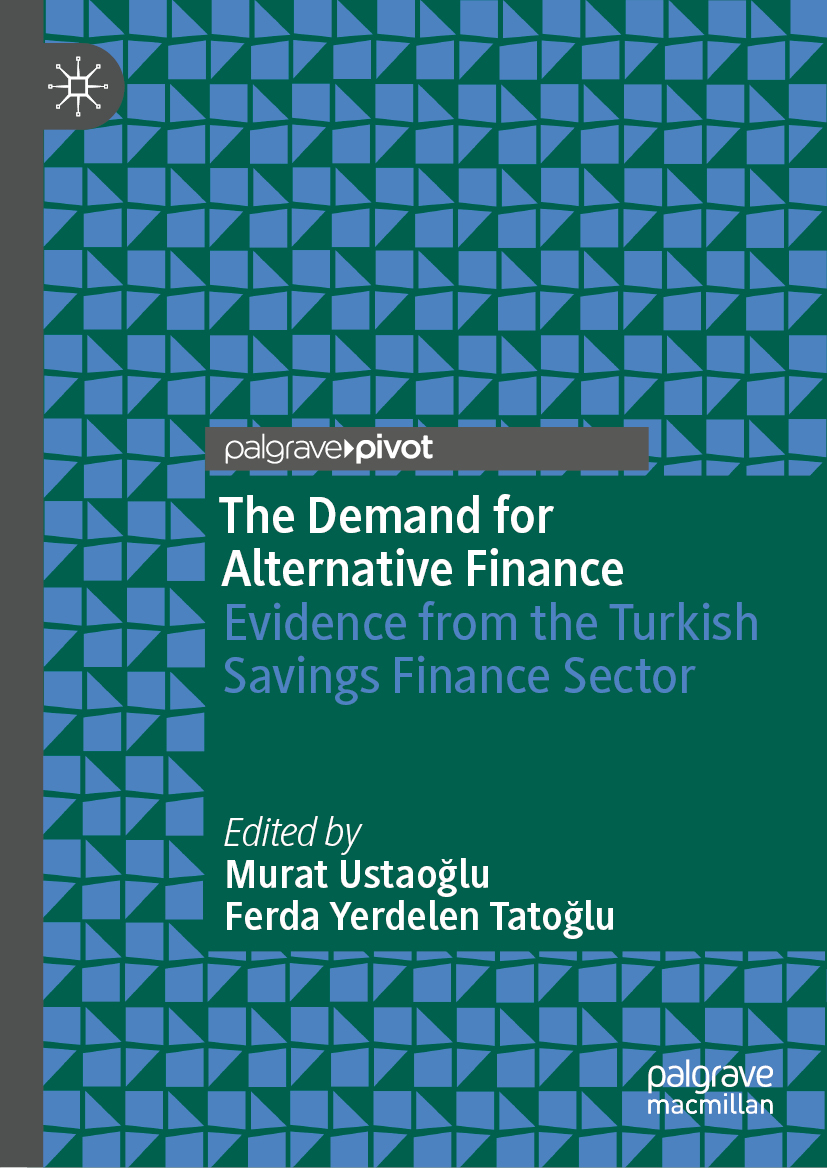The Palgrave Encyclopedia of Islamic Finance and Economics
- Murat USTAOĞLU

- Oct 16, 2023
- 4 min read
Updated: Jul 11, 2025
By Murat Ustaoğlu and Cenap Çakmak
Section Editors: Muhammet Sait Bozik and Büşra Çil
Palgrave Macmillan, London & New York, 2024

The concept of Islamic finance and economy has attracted a great deal of attention in the academic circles in recent years. The growing interest in the practices and products of Islamic finance and the integration of Islamic finance with global economy is a major factor; however, it is not appropriate to attribute the surge in academic publications on the subjects of Islamic finance to this factor alone. Islamic economics, as an alternative domain of study that offers innovative tools and approaches in place of conventional teachings in the literature, deserves greater attention in not only the realm of practice but also of academy and theory.
Interestingly, the concept of Islamic finance and economy takes greater attention in the West rather than predominantly Muslim countries. Even though there is visible interest in Islamic economy in such Muslim countries as Turkey, Malaysia, Iran and Malaysia, number and quality of academic studies in this field is far from being adequate and satisfactory. On the other hand, the Western academic circles, with the exception of some inherent prejudices and theological aloofness, are in pursuit of offering sincere answers to questions relevant to Islamic economic models and teachings. It should be noted, however, that the initial steps towards formulating an Islamic finance and economy should be taken in a Muslim country, Turkey being a major candidate. Despite that it has been a long time since the introduction of Islamic finance institutions, the academic circles in Turkey have failed to catch up and delayed to fill the gap. Laying down the theoretical framework of the Islamic finance institutions that have exhibited a trend of growth and popularity not only in Turkey but also in the world is a matter of urgency for the academic institutions and figures.
This encyclopedia seeks to address this problem and thus to offer an introductory account focusing on the subjects of Islamic finance and economics. There is visible need for such an account since there is no comprehensive literature that can be employed in courses being offered in courses on Islamic finance and economy. Additionally, there are not even much works of reference that can be consulted with by researchers who are in the initial phase of their studies. To this end, this work, an initiative that will address this gap by featuring a style of encyclopedia that holds a special place in Western academic tradition, collects and explains major concepts of Islamic finance and economics. The study that will present a solid framework for the elaboration of the major concepts of the subject will make use of the existing academic literature, as well as theological sources and the history of Islam and of Islamic financial practices. For this reason, this encyclopedia relies on an interdisciplinary approach. Even though in some instances will it give the impression that it is a study of economics literature, the volume will also make room for discussions of Islamic theology, history and philosophy. The goal in doing this is to present the historical theoretical framework as well as the modern and contemporary views and tendencies. From this perspective, this study makes a strong claim that it will serve as a reference work for those who are eager to conduct research on different aspects of Islamic finance and economics. The encyclopedia of Islamic economics and finance compiles and features what could be worth being researched further in an integrated manner. Every single entry in the encyclopedia represents a wider area where further research can be employed. What the researchers are expected to do is to pick one, identify the potential correlations and overlaps between different subjects and to draw a roadmap accordingly. The editors of the study are known for their academic works in the field of Islamic finance and other relevant fields. Those works have attracted attention and recognition in Western academic circles. The editors have published with renowned publishing houses and have picked the entries very carefully, also inviting academics with a reputation in their relevant field to contribute to the volume. The main goal is to make sure that the outcome is of high quality.
Only in recent years have we seen publication of introductory or reference works in the field of Islamic finance and economics in the literature. However, this collection offers a more comprehensive account of the subjects and makes a promise of maintaining a relationship between the concepts within a historical and theological context. The volume considers Islamic economics and finance as an independent and separate domain, allowing a more precise redefinition of the scope and framework of the discipline. The precision of the boundaries of the field bears great significance for the sake of academic productivity and efficiency. Likewise, for the general readership, a concrete framework of reference for a particular field of Islamic studies could be useful and this encyclopedia bears the promise of delivering such an outcome. Most importantly, this encyclopedia will serve as a reference and guide for the stakeholders and practitioners of Islamic finance. For this reason, not only libraries but also institutions of Islamic finance will show interest in what this encyclopedia offers.




Comments